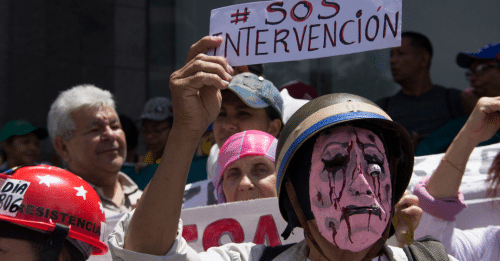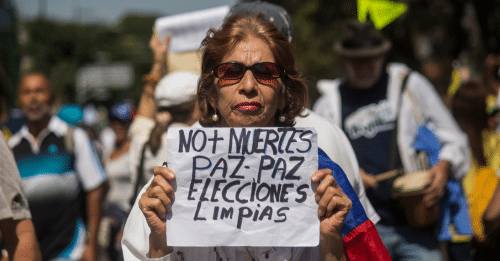Dismantling Shame: Embracing Curly Hair in Latine Culture
Writer Alejandra Aguirre dives into her experience of embracing hair deemed inferior in Latino culture.

My hair journey has been one of self-love and acceptance.
As a young child I remember having curly hair and the rest of my immediate family having very straight hair. I was also the child with a darker complexion so the question my mother often received (in front of me) was usually along the lines of, ‘Is this your daughter too?’
This was something that often made me feel like I didn’t belong, and to adapt to these feelings I did things to be celebrated like being a great student and a very obedient daughter. My mother loved my curly hair so in the process of making her happy I never wanted straight hair.
As a young teen I remember putting my head over the bathtub and scrunching a ridiculous amount of Tresemme mousse until my curl strands were nice and crunchy. This became a habit of mine until I reached high school, when hair straightening started and when I abandoned my curls. It’s as if there was an understanding that I was now entering a professional space and needed to adapt to the life I would be living after high school. Not to mention at this point hair straighteners finally became accessible to everyone. You could go to your local beauty supply store and get a BabyBliss straightener for a fraction of those expensive Chi straighteners. I think a lot of us felt like we could finally have what so many celebrities had had for so long and it felt good to resemble them with their long, straight tresses.
For 10 years I used a straightener. One day I woke up and decided to stop. It wasn’t hard or challenging because I made the personal decision to embrace my texture as part of my culture and my identity. While my immediate family did not have curly hair, it was a reminder that somewhere down my lineage I had indigenous ancestry that were living in Mexico before colonization. In a world of eurocentric beauty standards, wearing my natural hair was a symbol of resistance. I still get the comments, ‘You look so nice when you straighten it,’ ‘Why don’t you straighten it more often?’ However, this is who I have always been and my curly hair is a big part of it because it’s not tamed, it’s unpredictable and every curl is unique. It’s the way I’m navigating life nowadays – no restrictions, no boundaries, unapologetically showing up.
One of the exciting parts is that in the process of my own hair journey I’m seeing other friends and family love their hair! The beauty market has now learned to cater to us. You can go into any beauty store and find dozens of options for your curly mane. In the process of writing this, I asked some amigas how they had navigated their own curly hair journey and here’s what they said:
“The journey to restore my natural curl’s health was about a year in the making. I felt it was important to understand my locks in their natural state, the process of taking care of them, and the history behind my rizos. They were proudly passed down to me by my mami & her eyes light up anytime I rock my natural hair. My curl journey has provided me with a new level of love, respect, and admiration for myself and my culture!” – Jennifer Hernandez, Dallas, Texas
“My curly hair is one of the things that makes me who I am. The journey hasn’t been easy. Growing up I always wished I had straight hair so I could fit in with the other girls. I tried all sorts of products and procedures to the point where my hair was falling out. Not happy to admit one time I let a friend flatten my hair with a clothing iron. Honestly it wasn’t till my 30s when I finally fell in love with my curls. There was a Dove commercial a while back about teaching little girls to love their hair. I wish I would’ve seen that when I was young.” – Liz Vazquez, Washington, DC
“Fully embracing my curly hair has been part of my journey of radically loving myself. Growing up, I was constantly told by mainstream media and my community that beautiful looked like white very thin women with straight blonde hair and I didn’t fit any of those molds. For many years I felt doubt about my hair, body, and skin color. When I started seeing a therapist, we began to unpack and unlearn those standards of beauty. One of my therapist’s first suggestions was to follow other women that looked like me but as a biracial Latina I couldn’t find many people that looked like me so instead I decided to create content that made me feel beautiful with the hope that other women going through this same journey would feel seen.” -Michelle Dhasinghani, New York, NY
This journey is far from over for me because ultimately it’s more than just my hair, it’s undoing all the mainstream beauty standards that I have bought into.
It’s understanding that I’m whole as I am and without wanting to change my natural features to fit eurocentric beauty standards. It’s probably a journey most of us are on because the unrealistic beauty and body standards set by mainstream media and social media outlets can be overwhelming. Here’s your reminder for today amiga, you are enough, no matter how you decide to show up to the world.



